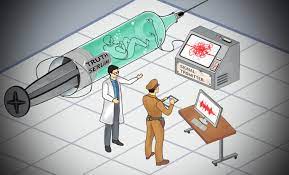NARCO-ANALYSIS TEST: EVIDENTIARY VALUE IN INDIAN LEGAL SYSTEM
AUTHOR – MUBASHARA FATIMA, STUDENT OF UNITY PG AND LAW COLLEGE, LUCKNOW
Best Citation – MUBASHARA FATIMA, NARCO-ANALYSIS TEST: EVIDENTIARY VALUE IN INDIAN LEGAL SYSTEM, ILE JOURNAL OF EVIDENCE AND JURISPRUDENCE (ILE JEVJ), 1 (1) of 2023, Pg. 8-13, APIS – 3920 – 0049 | ISBN – 978-81-964391-3-2.
Abstract
The evidentiary significance of the Narco-analysis test plays a crucial role in the process of criminal investigation. However, the Indian Evidence Act of 1872 does not specifically address the utilization of this scientific process. The use of Narco-analysis as an interrogation tool in India has been a topic of extensive discussion and debate. According to the Indian Law of Evidence, witnesses are allowed to state facts but not draw inferences, while experts are permitted to provide opinion evidence. Judges, on the other hand, are not experts in all fields, particularly in cases involving technical knowledge. It is essential for forensic scientists to employ their scientific methods to guide the police without violating established norms. This article explores the validity, admissibility, and criticism of narco-analysis in the Indian legal system. The Indian Evidence Act does not specifically address the use of narco-analysis, leading to debates on its legality and the admissibility of the statements obtained through this process as evidence in court. Ultimately, the future of narco-analysis as a forensic tool in the Indian legal system depends on ongoing discussions, legal interpretations, and advancements in scientific research.
Keywords – Narco-analysis test, Indian Evidence Act of 1872, Admissibility, Evidence, Rights
